
December 17
1903 First airplane flies:
Near Kitty Hawk, North Carolina, Orville and Wilbur Wright make the first successful flight in history of a self-propelled, heavier-than-air aircraft. Orville piloted the gasoline-powered, propeller-driven biplane, which stayed aloft for 12 seconds and covered 120 feet on its inaugural flight. [For further information, click here]
1909 Birth: Ferdinand Hugo Aus der Fuenten: German war criminal, among the "Breda 4."
In spring 1941, a Zentralstelle fadische Auswanderung (Central Office for Jewish Emigration) was set up. Officially under Willy Lages, head of the SD in Amsterdam, it was administered on a daily basis by Ferdinand Aus der Fuenten . . . . Aus der Fuenten was condemned to death in Holland, a sentence commuted to life imprisonment. He was amnestied in 1989
1914 World War I: Egypt—previously subject to Turkey—is declared by Great Britain a protectorate, and troops are moved there to defend the Suez Canal.
1917 Russian Revolution: Various:
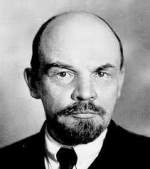
Lenin's Ultimatum to the Ukraine, Warning Against Independence:
The Russian Socialist Government, by the voice of the Soviet of the people's commissaries, once more confirms the independent national rights of all the nationalities that were oppressed by the Tsarist-Great Russian bourgeoisie, even to the point of recognizing the right of these nationalities to separate themselves from Russia. Consequently, we, the Soviet of the commissaries of the people, recognize the right of the Ukrainian People's Republic to separate itself entirely from Russia and to enter into pourparlers with the Russian Republic on the subject of the determination of federal or other mutual relations to be established between the two republics. All that concerns the national rights and the independence of the Ukraine we, the commissaries of the people, freely recognize without any limits or conditions.
Church and Soviet: Confiscation of the property of the Russian Orthodox Church and abolition of religious instruction in schools is announced by the Bolshevik government.
1919 World End: Albert Porta:—an expert seismographer and meteorologist—had predicted that a conjunction of six planets on this date would spell the end of the world. The alignment of planets would cause a magnetic current which would pierce the sun and thereby engulf the earth in flames. As the date approached suicides and hysteria were reported throughout the world.
1920 Various:
The island was allocated to Germany under the 1886 Anglo-German Convention. Phosphate was discovered a decade later and the Pacific Phosphate Company started to exploit the reserves in 1906, by agreement with Germany. Following the outbreak of World War I, Australian forces captured the island in 1914. After the war, the League of Nations assigned a joint trustee mandate over the island to Britain, Australia, and New Zealand. The three governments established the British Phosphate Commissioners, who exercised the rights to phosphate mining.
During World War II Japan occupied Nauru in August 1942 and deported 1,200 Nauruans to work as laborers in the Caroline Islands, where 463 died. The survivors returned to Nauru in January 1946.
After the war the island became a UN Trust Territory under Australia, in line with the previous League of Nations mandate, and it remained one until it became an independent republic in 1968.
Countdown to Infamy: Japan becomes the first non-white colonial power as she receives the League of Nations mandate over the Pacific islands.
Weimar: Muenchener Beobachter: All shares in the newspaper (later renamed the Voelkischer Beobachter,) are now in the hands of Anton Drexler. It becomes the official organ of the NSDAP, with Dietrich Eckart is its first editor and publisher. (THP)
1923 Greece: King George II is overthrown by the army, which then institutes a republic.
1925 US Army General William 'Billy' Mitchell—an outspoken advocate of a separate US Air Force—is found guilty of 'conduct prejudicial to the good of the armed services.' His advocacy of air power, and his insistence that is possible to sink warships with warplanes, make him unwanted by the stilted military establishment of the day. However, he will eventually be completely vindicated, and will be awarded the Medal of Honor as well.
1927 A US sub, the 'S-4,' sinks after a collision killing all 34 aboard.
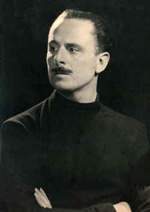
1934 Sir Oswald Mosley (Bart.)—leader of the British Union of Fascists—is tried for riotous assembly.
1940 World War II: Various:
North Africa: British troops occupy Fort Capuzzo, Sollum and three other Italian positions on the Egypt-Libyan border. Italian survivors retreat to Bardia fortress.

Lend-lease: FDR outlines his plan for supplying arms and equipment to Britain. Many, including the Germans, view this as a clear violation of American neutrality.
1941 World War II: Various:
Stalin to Churchill:

I received your message of December 16. It did not indicate the aims of the conferences . . . . I saw fit when I met Mr. Eden, who had just arrived in Moscow, to ask him what those aims were and whether the two conferences could be put off for a while. It appeared, however, that Mr. Eden was not posted either. I should like, therefor, to have the appropriate elucidations from you in order to ensure the results expected from Soviet participation. Thank you for the sentiments expressed over the Soviet armies' successes. I wish you success in the struggle against aggression in the Pacific.
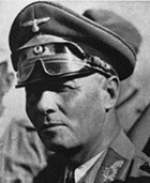
North Africa: German troops led by Rommel begin retreating.
Commander at Pearl Harbor canned:
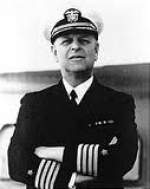
On this day, Rear Admiral Husband E. Kimmel was relieved of his command of the U.S. Pacific Fleet as part of a shake-up of officers in the wake of the Pearl Harbor disaster.
Admiral Kimmel had enjoyed a successful military career, beginning in 1915 as an aide to the Assistant Secretary of the Navy, Franklin Delano Roosevelt. He served admirably on battleships in World War I, winning command of several in the interwar period. At the outbreak of World War II, Kimmel had already attained the rank of rear admiral and was commanding the cruiser forces at Pearl Harbor. In January 1941, he was promoted to commander of the Pacific Fleet, replacing James Richardson, who FDR relieved of duty after Richardson objected to basing the fleet at Pearl Harbor.
If Kimmel had a weakness, it was that he was a creature of habit, of routine. He knew only what had been done before, and lacked imagination—and therefore insight—regarding the unprecedented. So, even as word was out that Japan was likely to make a first strike against the United States as the negotiations in Washington floundered, Kimmel took no extraordinary actions at Pearl Harbor. In fact, he believed that a sneak attack was more likely at Wake Island or Midway Island, and requested from Lieutenant General Walter Short, Commander of the Army at Pearl Harbor, extra antiaircraft artillery for support there (none could be spared).
Kimmel's predictability was extremely easy to read by Japanese military observers and made his fleet highly vulnerable. As a result, Kimmel was held accountable, to a certain degree, for the absolute devastation wrought on December 7. Although he had no more reason than anyone else to believe Pearl Harbor was a possible Japanese target, a scapegoat had to be found to appease public outrage. He avoided a probable court-martial when he requested early retirement. When Admiral Kimmel's Story, an "as told to" autobiography, was published in 1955, Kimmel made it plain that he believed FDR sacrificed him—and his career—to take suspicion off himself; Kimmel believed Roosevelt knew Pearl Harbor was going to be bombed, although no evidence has ever been adduced to support his allegation. (History.com)
1943 World War II: Various:
Italy: The Germans begin withdrawing troops from San Pietro. Monte Sammucro is now in Allied hands.
From a speech by Doenitz:
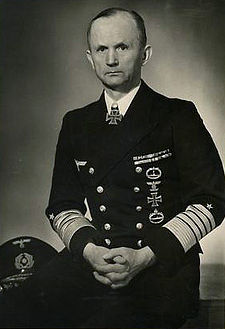
I am a firm adherent of the idea of ideological education. For what is it in the main? Doing his duty is a matter of course for the soldier. But the full value, the whole weight of duty done, is only present when the heart and spiritual conviction have a voice in the matter. Doing his duty is then quite different from what it would be if I only carried out my task literally, obediently, and faithfully. It is therefore necessary for the soldier to support the execution of his duty with all his mental, all his spiritual energy; and for this his conviction, his ideology are indispensable. It is therefore necessary for us to train the soldier uniformly, comprehensively, that he may be adjusted ideologically to our Germany. Every dualism, every dissension in this connection, or every divergence or unpreparedness simply a weakness in all circumstances. He in whom this grows and thrives in unison is superior to the other. Then indeed the whole importance, the whole weight of his conviction comes into play. It is also nonsense to say that the soldier or the officer must have no politics. The soldier embodies the state in which he lives, he is the representative, the articulate exponent of his state. He must therefore stand with his whole weight behind this state. We must travel this road out of our deepest conviction. The Russian travels along it. We can only maintain ourselves in this war if we take part in it, with holy zeal, with all our fanaticism . . . . I alone cannot do this, but it can be done only with the aid of the man who holds the production of Europe in his hand with Minister Speer. My ambition is to have as many warships for the Navy as possible so as to be able to fight and to strike. It does not matter to me who builds them.
1944 World War II: Various:
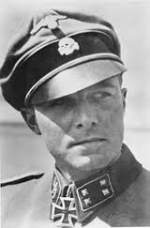
Battle of the Bulge: By afternoon, one of Gen. Sepp Dietrich's SS Panzer groups, commanded by SS Col. Joachim Peiper, has penetrated almost to Malmedy, Belgium. Note: Peiper will later become notorious for allegedly ordering the machine-gunning of a number of captured GI's from the US 7th Armored Division in a field south of Malmedy (see below). At the time of the actual incident at Baugnez crossroads, Peiper, riding with his Panzespitze, will be already well on his way to Ligneuville, although it is possible he could have contacted the SS men responsible for the killings by radio.
Massacre of POWs: From a report related to the murder of 129 American prisoners of war which was perpetrated by the German Army in a field in the southwest, and west of Baignes in Belgium:
[The] artillery and machine gun fire on the column of American vehicles continued for about 10 to 15 minutes, and then two German tanks and some armored cars came down the road from the direction of Weismes. Upon reaching the intersection, these vehicles turned south on the road toward St. Vith. The tanks directed machine gun fire into the ditch along the side of the road in which the American soldiers were crouching; and upon seeing this, the other American soldiers dropped their weapons and raised their hands over their heads.
The surrendered American soldiers were then made to march back to the crossroad, and as they passed by some of the German vehicles on highway N-23, German soldiers on these vehicles took from the American prisoners of war such personal belongings as wrist watches, rings, and gloves. The American soldiers were then assembled on the St. Vith road in front of a house standing on the southwest corner of the crossroad. Other German soldiers, in tanks and armored cars, halted at the crossroad and also searched some of the captured Americans and took valuables from them . . . an American prisoner was questioned and taken with his other comrades to the crossroads just referred to . . . .
[At] about this same time a German light tank attempted to maneuver itself into position on the road so that its cannon would be directed at the group of American prisoners gathered in the field approximately 20 to 25 yards from the road . . . . some of these tanks stopped when they came opposite the field in which the unarmed American prisoners were standing in a group, with their hands up or clasped behind their heads. A German soldier, either an officer or a noncommissioned officer, in one of these vehicles which had stopped, got up, drew his revolver, took deliberate aim and fired into the group of American prisoners. One of the American soldiers fell. This was repeated a second time and another American soldier in the group fell to the ground. At about the same time, from two of the vehicles on the road, fire was opened on the group of American prisoners in the field. All, or most, of the American soldiers dropped to the ground and stayed there while the firing continued, for 2 or 3 minutes. Most of the soldiers in the field were hit by this machine gun fire.
The German vehicles then moved off toward the south and were followed by more vehicles which also came from the direction of Weismes. As these latter vehicles came opposite the field in which the American soldiers were lying, they also fired with small arms from the moving vehicles at the prostrate bodies in the field . . . . some German soldiers, evidently from the group of those who were on guard at the crossroad, then walked to the group of the wounded American prisoners who were still lying on the ground in the field . . . . and shot with pistol or rifle, or clubbed with a rifle butt or other heavy object, any of the American soldiers who still showed any sign of life. In some instances, American prisoners were evidently shot at close range, squarely between the eyes, in the temple, or the back of the head.
Churchill to Hopkins:
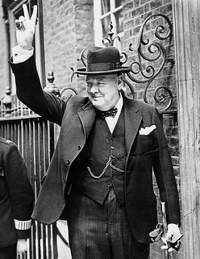
I am distressed and puzzled by your message. I hope you will not hesitate to telegraph me on any points which you think we, or I personally, have been in error, and what you would advise, because I have great trust in your judgement and friendship, even if I may at times look at matters from a different angle. All the President's telegrams to me have been most kind and encouraging, and also his telegram to U.J. may do a world of good. 2. Naturally I should welcome any public statements in American which set forth the aims stated in your last sentence. These are also ours. We seek nothing for ourselves from this struggle.
Churchill to FDR:
Our immediate task is to secure control of Athens and the Piraeus. According to the latest reports, E.L.A.S. may agree to depart. This will give us a firm basis from which to negotiate the best settlement possible between the warring Greek factions. It will certainly have to provide for the disarming of the guerrilla forces. The disarmament of the Greek Mountain Brigade, who took Rimini, and the Sacred Squadron, who fought so well at the side of British and American troops, would seriously weaken our forces, and in any case we could not abandon them to massacre. They may be removed elsewhere as part of a general settlement. 5. I am sure you would not wish us to cast down our painful and thankless task at this time. We desire nothing from Greece but to do our duty by the common cause. In the midst of our task of bringing food and relief and maintaining the rudiments of order for a Government which has no armed forces we have become involved in a furious, though not as yet very bloody, struggle. I have felt it much that you were unable to give a word of explanation for our action, but I understand your difficulties.
U.S. approves end to internment of Japanese Americans:
During World War II, U.S. Major General Henry C. Pratt issues Public Proclamation No. 21, declaring that, effective January 2, 1945, Japanese American "evacuees" from the West Coast could return to their homes.
On February 19, 1942, 10 weeks after the Japanese bombed Pearl Harbor, U.S. President Franklin D. Roosevelt signed Executive Order 9066, authorizing the removal of any or all people from military areas "as deemed necessary or desirable." The military in turn defined the entire West Coast, home to the majority of Americans of Japanese ancestry or citizenship, as a military area. By June, more than 110,000 Japanese Americans were relocated to remote internment camps built by the U.S. military in scattered locations around the country. For the next two and a half years, many of these Japanese Americans endured extremely difficult living conditions and poor treatment by their military guards.
During the course of World War II, 10 Americans were convicted of spying for Japan, but not one of them was of Japanese ancestry. In 1988, President Ronald Reagan signed a bill to recompense each surviving internee with a tax-free check for $20,000 and an apology from the U.S. government. (History.com)
Goebbels discusses the war situation:
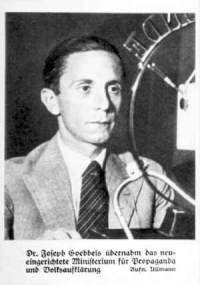
We Germans are not the only ones in the sixth year of war. One may assume that the problems the war's long duration have given us also affect the other combatant nations. Each warring nation is naturally eager to conceal this from the eyes of the enemy and present a facade that does not accurately reflect the true situation. The war is having the same effects on all participating nations, but one can see those effects faster and more clearly in one's own country than in the enemy's. As we always say, the other side is no better than we are. The German people loves the truth.
1945 Nuremberg Tribunal: Continuation of Captain Samuel Harris' Presentation of the Case Concerning Germanization and Spoliation in Occupied Countries. Beginning of Col. Robert Storey's Presentation of the Case Against the Leadership Corps.
1946 Wunderwaffen: A US-captured German V-2 rocket reaches an altitude of 183km at White Sands Proving Grounds in New Mexico.
1963 West and East Berlin sign an accord about travel rules.
1991 Yeltsin supporters announce Soviet Union will cease to exist by New Year's Eve:
After a long meeting between Soviet President Mikhail Gorbachev and President of the Russian Federation Boris Yeltsin, a spokesman for the latter announces that the Soviet Union will officially cease to exist on or before New Year's Eve. Yeltsin declared that, "There will be no more red flag." It was a rather anti-climactic culmination of events leading toward the dismantling of the Soviet Union. [For further information, click here]
2011 Kim Jong Il, Leader of North Korea, Dies:
On this day in 2011, Kim Jong Il, North Korea's enigmatic, reclusive dictator, dies of a heart attack while reportedly traveling on a train in his country. Kim, who assumed leadership of North Korea upon the death of his father in 1994, ruled the Communist nation with an iron fist, and his isolated, repressive regime was accused of numerous human rights violations. [For further information, click here]
Edited by Levi Bookin (Copy editor)
levi.bookin@gmail.com
FAIR USE NOTICE: This site may contain copyrighted material the use of which has not always been specifically authorized by the copyright owner. We are making such material available in our efforts to advance understanding of historical, political, human rights, economic, democracy, scientific, environmental, and social justice issues, etc. We believe this constitutes a 'fair use' of any such copyrighted material as provided for in section 107 of the US Copyright Law. In accordance with Title 17 U.S.C. Section 107, the material on this site is distributed without profit to those who have expressed a prior interest in receiving the included information for research and educational purposes. If you wish to use copyrighted material from this site for purposes of your own that go beyond 'fair use', you must obtain permission from the copyright owner.
Please note that the list-owner and the moderators are not responsible for, and do not necessarily approve of, the random ads placed on our pages by our web server. Unfortunately, they are the price one pays for a 'free' website.